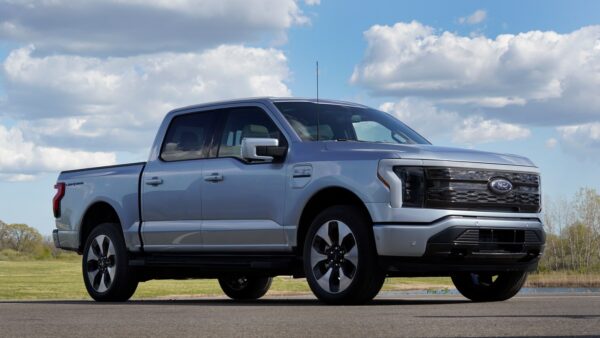
Buying a Used Pickup Truck: A Comprehensive Guide

Purchasing a used pickup truck can be a smart financial decision. It allows you to get a reliable vehicle at a lower cost than buying a new one. However, the process requires careful consideration and research. This guide will help you navigate the complexities of buying a used pickup truck.

Determine Your Needs
Before you start shopping for used pickup trucks, identify your specific needs:
· What will you use the truck for? Daily commuting, hauling, or off-roading?
· How much towing capacity do you require?
· Do you need a full-size or mid-size truck?
· What cab size suits your needs? Regular, extended, or crew cab?
· How much bed length do you need?
Answering these questions will narrow down your options. It will help you focus on trucks that meet your requirements.
Set a Budget
Determine how much you can afford to spend:
· Consider the purchase price and ongoing costs.
· Factor in insurance, fuel, maintenance, and potential repairs.
· Remember that older trucks may require more frequent repairs.
· Don’t forget to account for registration fees and taxes.
Stick to your budget to avoid financial strain. Be prepared to walk away if a deal doesn’t fit your financial plan.
Research Different Models
Once you know your needs and budget, research various truck models:
· Look into reliability ratings from trusted sources.
· Check consumer reviews for real-world experiences.
· Compare fuel efficiency across different models.
· Investigate common issues for specific makes and models.
· Consider resale value if you plan to sell in the future.
Take your time with this step. Thorough research can save you from costly mistakes later.
Check Vehicle History
Always obtain a vehicle history report:
· Use services like Carfax or AutoCheck.
· Look for accidents, flood damage, or major repairs.
· Check the number of previous owners.
· Verify the mileage history.
· Ensure the title is clean and not salvaged.
A clean history doesn’t guarantee a perfect truck. But it can reveal potential red flags.
Inspect the Exterior
When viewing a truck, carefully inspect the exterior:
· Look for signs of rust or corrosion.
· Check for dents, scratches, or mismatched paint.
· Examine the tires for uneven wear.
· Ensure all lights and signals are working.
· Check that the doors, hood, and tailgate align properly.
Don’t be afraid to get on your hands and knees. Look underneath for any signs of damage or leaks.
Examine the Interior
The interior can reveal a lot about how the truck was treated:
· Check for excessive wear on seats and carpets.
· Ensure all electronics are functioning.
· Look for any strange odors that might indicate problems.
· Test all buttons, knobs, and levers.
· Check that all seatbelts are in good condition.
A well-maintained interior often indicates a well-cared-for truck overall.
Assess the Engine and Mechanical Components
The engine and mechanical parts are crucial:
· Listen for any unusual noises when the engine is running.
· Check for leaks under the truck.
· Inspect belts and hoses for cracks or wear.
· Check fluid levels and condition.
· Look for signs of poor maintenance or neglect.
Consider bringing a trusted mechanic for a thorough inspection. Their expertise can be invaluable.
Take a Test Drive
A test drive is essential:
· Drive on various road types if possible.
· Test the brakes at different speeds.
· Check for any pulling to one side.
· Listen for unusual noises.
· Test all gears if it’s a manual transmission.
· Try parking to check maneuverability.
Pay attention to how the truck handles. Trust your instincts if something feels off.
Consider the Mileage
Mileage is an important factor:
· Lower mileage usually means less wear and tear.
· However, extremely low mileage on an older truck can be suspicious.
· High mileage isn’t necessarily bad if the truck was well-maintained.
· Consider the type of miles driven (highway vs. city).
Remember, regular maintenance is often more important than mileage alone.
Check for Modifications
Be cautious of heavily modified trucks:
· Modifications can void warranties.
· They may indicate hard use.
· Some mods can cause reliability issues.
· Others might improve performance or functionality.
If you’re interested in a modified truck, research the specific modifications. Understand their impact on the vehicle’s performance and reliability.
Verify Towing Capacity
If you plan to tow, verify the truck’s capabilities:
· Check the manufacturer’s stated towing capacity.
· Ensure any towing package is installed correctly.
· Verify that the truck can handle your specific towing needs.
Don’t rely on the seller’s word alone. Confirm towing capacities independently.
Investigate Fuel Efficiency
Fuel costs can significantly impact your budget:
· Check the EPA fuel economy ratings.
· Research real-world fuel economy from current owners.
· Consider how your intended use will affect fuel consumption.
Remember, actual fuel economy may vary based on driving habits and conditions.
Review Safety Features
Safety should be a priority:
· Check for airbags and their condition.
· Look for anti-lock brakes and stability control.
· Consider advanced safety features like backup cameras.
· Research the truck’s crash test ratings.
Newer used trucks often have more advanced safety features. Factor this into your decision-making process.
Negotiate the Price
Be prepared to negotiate:
· Research the fair market value of the truck.
· Use any issues found during the inspection as negotiating points.
· Be willing to walk away if the price isn’t right.
· Consider the overall value, not just the sticker price.
Remain polite but firm during negotiations. Don’t let emotions override your budget.
Get a Pre-Purchase Inspection
Before finalizing the purchase, get a professional inspection:
· Use a trusted, independent mechanic.
· They can identify issues you might have missed.
· The cost of an inspection is worth the potential savings.
· An inspection can provide peace of mind.
If the seller refuses to allow an inspection, consider it a red flag.
Understand the Warranty and Return Policy
Know what protection you have:
· Check if any manufacturer’s warranty remains.
· Consider an extended warranty for older trucks.
· Understand the dealer’s return policy, if applicable.
· Get all warranty and policy information in writing.
Don’t assume you have protections. Always verify and get documentation.
Finalize the Purchase
Once you’re ready to buy:
· Review all paperwork carefully.
· Ensure all agreed-upon repairs are completed.
· Get copies of all documents.
· Make sure the title is transferred properly.
Take your time with this step. There is no rush to sign anything.
Buying a used pickup truck requires careful consideration and research. Take your time with each step of the process. Don’t rush into a purchase. With patience and diligence, you can find a reliable used pickup truck that meets your needs and budget. Remember, the right truck is out there. It’s worth the effort to find it.











































